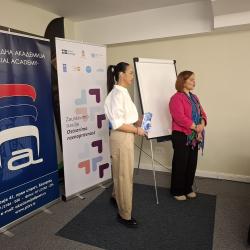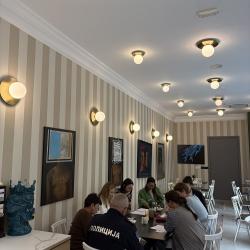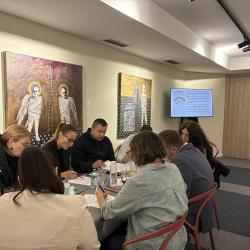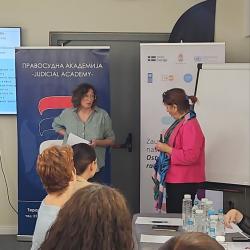Training "Safety is not a choice: risk assessment and the role of institutions in preventing violence"
The judicial academy is, in cooperation withUnited Nations Development Program (UNDP) in Serbia, and within the project "Reduce Risk - Increase Security III" realized the first of seven one-day trainings called "Security is not a choice: risk assessment and the role of institutions in preventing violence. Training was held 3.10.2025. At the Artist Hotel in Subotica.
The training was attended by the main major prosecutors and basic public prosecutors and prosecutorial assistants, as well as members of the uniform part of the police and employees in social work centers, all from different cities in the autonomous province of Vojvodina. The training was realized at the Artist Hotel Conference in Subotica.
The training program is aimed at continuous improvement of the quality of cross-sectoral communication and cooperation, as well as refreshment of internal prejudices in terms of domestic violence and femicides.
In focus is the question: Based on what are we making decisions - and how do we cooperate when we need to protect someone together?
The aim of the seminar is to strengthen the participants for recognizing and understanding practical decision-based decisions, improving the quality of multisectoral cooperation through the simulations of joint work and encourage the exchange of knowledge and experiences between the sector.
The lecturers at this training were:
- Sandra Perić, Director of the Social Welfare Chamber and
- Gorjana Mirčić Čaluković, Public Prosecutor and Lecturer in front of the Judicial Academy.
Sandra Perić was exhibited on the topic of personal and professional bias, as well as in cases of domestic violence, first organized work in the subjects present in the topic, selecting key information in a multisectoral context ", then spoke on the topic , all for one: multisectoral response In practice - understanding the roles and responsibilities of all in the protection chain ".
The conclusion of the beneficiary at the end of the training was to have room for improving the work both in each organ individually and in multisectoral communication.
The remaining trainings are planned to be implemented during October and November of the current year.




